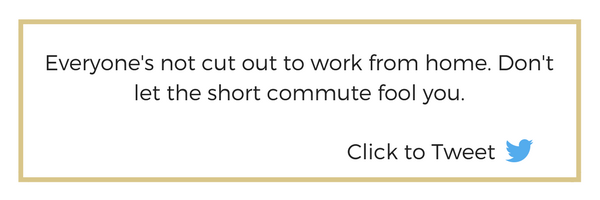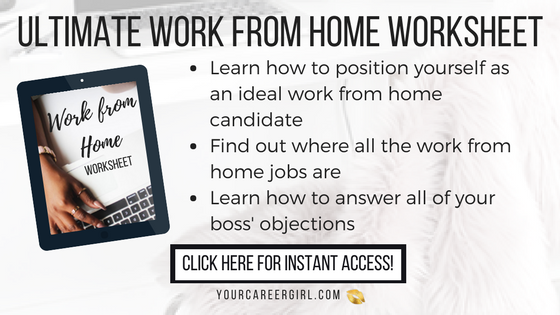Working from home (aka working remotely) is the ideal arrangement for most people working a 9-5.
I mean, who wouldn't want to reduce commute time down to the mere minutes it takes to walk from the bedroom to the kitchen table? A 2015 study by Flex Jobs reveals 76% of people prefer working from home rather than the office - and as someone who does work from home, I couldn't agree more.
These stats shouldn't be surprising to anyone. There's nothing like having peace and quiet to put your head down and focus when you're working on an important project or just need some alone time - which is something most office settings just don't have.
Think about how noisy your own office is. There's the constant interruptions from people asking "a quick question" (they obviously must not have seen the headphones in your ear or you intensely glaring at your computer screen) . Or the loud chatter and laughter from the group a few rows over from where you sit.
The truth is though that as much as there are benefits to working from home, everyone who wants to work from home shouldn't actually do it.
There's more to creating a successful work from home environment than having a good internet connection and a quiet space to work. If you're working from home you'll also need to have the work from home personality.
Yes, there's a work from home personality and it's much deeper than whether you're an introvert or extrovert. Working from home requires a certain level of discipline and focus in order to make sure you're successful at your job.
If you're considering working from home, here are six questions you'll need to ask yourself before you take the leap.
- Am I OK (happy even) spending long periods of time on my own?
- Am I disciplined and motivated enough to work on my own?
- Am I OK working without direct supervision?
- Am I comfortable communicating via email, IM, video conference, etc. instead of in person?
- Do I have a quiet, distraction-free space to focus on my work?
- Will working from home help me achieve the work-life balance I'm looking for?
Take a moment for some honest reflection as you're going through each questions. Ideally, the answer should be "yes" to each of them.
If you're having trouble with any of these areas, chances are you're work from home experience won't be the most pleasant - for you or your employer.























